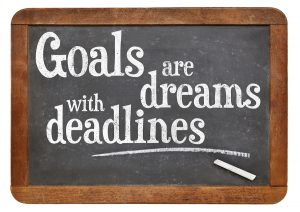What do you do if people at work are gossiping about you? Coming to work and doing a good job is challenging enough. We shouldn’t have to deal with gossip, but it most certainly happens.
This article has some suggestions on dealing with gossip at work.
People might be gossiping about you for several reasons. Maybe it’s a political power move, it could be a form of bullying, or it could be harmless chit chat.
Tips for Dealing with Gossip at work
If it happens to be a political power move, the person spreading rumors or gossiping could be trying to make you look bad to gain favor from a boss or other colleagues. Maybe your strategy might be to ignore it. Maybe it might blow over. Make sure you do your job well and document everything, just in case things get ugly.
Talk to Human Resources if you feel it’s making it too challenging to work in the environment.
Think carefully before approaching the bully. Confronting this person may not work especially if the bully is of high rank or a senior leader. This person could maliciously start sabotaging you. You have to be strategic and think things through.
Another reason why confronting the bully might not be a good idea is because doing so might add fuel to the fire. These situations are challenging. Especially if you don’t have hard evidence that this person is spreading rumors.
Talk to your supervisor if you have a great relationship with him/her. If you don’t, your boss might side with the bully. If your boss doesn’t like you, it might not be helpful at all to talk to them.
Sometimes people just gossip! It may be that they like drama or they are bored and don’t have anything better to do. If this is the case, then you might want to ignore it. But if you think it’s affecting your reputation, or your ability to do your job, talk to Human Resources. Try to avoid the issue escalating out of control.
Ask to be reassigned to another area or team. However, if you are new, some of these things happen to new people. If this is the case, focus on doing what you were hired to do. Be a great employee. Learn your job and try to get along with your supervisor and coworkers.
 Using Reverse Psychology
Using Reverse Psychology
Another tip that might work is to act like the rumors don’t bother you. If it’s true and it’s a non-damaging rumor, admit it and talk about it as if it’s no big deal. For example, if people are saying that you really don’t know what you are doing, then admit it. Say something like, “You know, I don’t really know what I’m doing, I’m learning and I’ll get it.” “I made a mistake, I won’t do that again.”
However, don’t admit to things that are not true. With these more harmful lies, it can be difficult to deny them without looking defensive. Instead, simply focus on doing your job as best as you can. For example, if someone is spreading a rumor that you are on drugs, it’s unlikely anyone would believe them if you’re performing so well. Certainly, don’t come to work acting crazy and looking a mess.
Act strong and confident, even if you have to fake it.
Acting strong and confident can help your advance your career and to avoid being bullied. Bullies are insecure and they generally pick on people that look weak. You might have been handpicked because you’re a nice sweet person. BTW, you can be strong and confident as well as nice and sweet. If you act strong and confident, then you might be able to ward off some of this behavior. In this instance, you may need to stand up for yourself and confront the person spreading rumors. This might send a signal that you are not going to put up with the nonsense. For example, if they criticize you publicly, don’t shy away and shrink down. Instead maybe a good suggestion is to turn to them and quietly tell them a better approach would be to talk to you privately.
If they continue, repeat that you would like to talk in private. This way, you have immediately responded to the conflict and it will make you appear like someone that will not to stand for that treatment.
From my experience, if you go quiet and allow yourself to be embarrassed in public, you’ll likely become the victim of further targets.
Have you had experiences with gossip or rumors?
Tamariaallen.com

Connect with me on Facebook









 Using Reverse Psychology
Using Reverse Psychology

